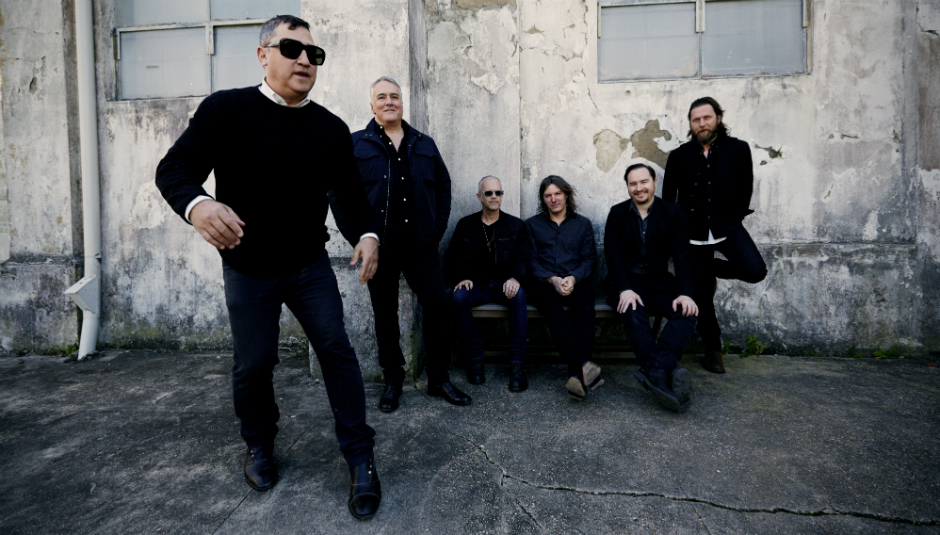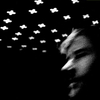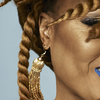The Afghan Whigs have always had a knack for making the gritty sound glorious. Throughout their career, they’ve made their name proffering a hybrid of soul and grunge, often centered around topics like seedy sex. Or, as is the case with 1996’s Black Love, seedy sex and murder, which they still managed to spin into an anthemic, steamy album. Their albums have also been populated with addiction, suicidality, depression, and the nastiness of the record industry.
When the Afghan Whigs announced their breakup in 2001 and the years began to go by, fans lost hope of a reunion. Besides, frontman Greg Dulli was now pouring his creative energy into The Twilight Singers and The Gutter Twins, a project he formed with Mark Lanegan. It wasn’t until 2011 that the Afghan Whigs began to make spotty returns to the public eye with one-off performances. These were generally well-received, and audiences sensed a stability they’d not seen before. So it wasn’t a total surprise when the band announced that a new album, Do To The Beast, would be released in 2014. While a lineup change meant a new drummer and a cast of guitarists filling Rick McCollum’s shoes, the deft chemistry between Dulli and bassist John Curley assured that the album would have their customary dark intensity.
After Do To The Beast, it was anybody’s guess what would come next. It turned out to be the larger-than-life In Spades, which features all sorts of experiments with song structure, oblique lyrics, and as many moments of soaring triumph as of catastrophe.
We spoke with Dulli about the new album, his love of the occult, and what Prince means to him.
DiS: I read that this album was influenced by you reconnecting with your childhood. How did that come through in the record?
Greg Dulli: In terms of that, that was something I might have said to the bio writer about a series of dreams I had last summer and I followed those dreams into the songwriting arena. The dreams were kind of specific to a place and time and a neighborhood that was near my school. The neighborhood was named Birdland. All the streets were named after birds. The first dream that contributed to the album was a dream where I was walking down Oriole Street. After that dream, I woke up and went to the studio and began to construct the song that became 'Oriole.' Again, this is not any kind of [process] that I sat down and laid out my childhood and wrote an album about it. I can't pretend that that's what I did. These were just elements that I used to write songs. But I use all kinds of elements to write and to make albums. The best way to describe it is I'm like a bird building a nest. I'll take pieces of cloth, straw, paper, whatever, to construct what I'm trying to do. So that's just a small part of what I did for making this record.
Do these elements change every time, or are there certain building materials that you go back to time and again?
My method of writing songs is incredibly simple. I find a riff that I like, then I find another part that I like that complements an arrangement. And then over the top of that arrangement, I will scat a melody and then feel out the song phonetically, leaning heavily on vowel sounds. Once I have a construct, I'll begin to fill those sounds in with words. I've written songs like that since I was 14.
The bio said that 'Toy Automatic' was your favorite song on the album. What do you like about it?
Usually, there's a song on every record that I spend an inordinate amount of time with. 'Toy Automatic' is a riff that I played for a week. I just sort of unconsciously played it over and over as I was figuring it out. I think I spent the most time with 'Toy Automatic.' It sort of came out of a piece that closes the song 'Oriole.' I was able to marry those two songs; they became brother and sister. In terms of that song being my favorite, I had an emotional attachment to it. It was a way of me saying goodbye to someone who I wasn't able to say goodbye to in person and who's no longer here now. It had a deep emotional resonance that no other song was going to have in terms of that feeling. It was about a particular person and a situation.
The new album has elements of the occult. Was that part of your reading, or had you been doing divination, or travelling somewhere that inspired that imagery?
I've had an interest in the occult probably since I started listening to Led Zeppelin. It's not that I'm an occultist or a magick practitioner, but I do have a deep appreciation for the occult and its surrounding arts. For a person to think they exist only in the realm they're presented at birth is...well, you're doing yourself a disservice. There are planes of existence left and right. My first foray as a teenager into taking psychedelics – you are introduced to different worlds, worlds that exist for everyone. You just have to be intrepid enough to open the doors. Magick turns its nose up at everyday life, and it says “What about this? What about that?” And it asks questions and it's mischievous and it's mysterious and it's seductive; it's all the fun things.
Do you still live part-time in New Orleans?
I do. I live part-time between LA and New Orleans. It's impossible to escape the influence that Haitian culture, including vodou and Santeria, have had on that area. There's a lot of people with Caribbean heritage in New Orleans. The existence of that aspect of New Orleans is not to be overlooked.
My friend ran into you in a bar there once. He didn't want to bother you, so all he said to you was how much Blackberry Belle meant to him.
Oh, wow, Blackberry Bellemeans a lot to me too, so I always feel a kinship with those people.
One thing I noticed on the new record was how many different song structures there are. Was that part of your project, or was that something that just happened based on the way the songs were composed?
That's probably unconscious. When I write songs, I'll guide it as much as I can, but you have to let the song be what it wants to be. If you try to force it into something that it doesn't want to be, so you're following some sort of songwriting template, that I don't have any interest in. I've written plenty of traditional song structures and may do it again someday. But this batch of songs told me what it wanted to be.
I know that you're a really big Prince fan and have been influenced by his music and also very affected by his passing. Can you articulate how he influenced you?
I saw Prince when I was in high school, on the 1999 tour. I had never seen someone so completely in command of the stage. Singing, guitar playing, dancing, talking, leading the band – it was utter command. I couldn't take my eyes off him. I went back and bought all of his older records after I saw that show. When Purple Rain came out, I had been baptized by then. He had a run of records that few artists have had. There was something absolutely unique and beautiful about what he did. And the fearlessness. Never afraid to try something or alienate someone to get to where he wanted to go. Fiercely independent. I saw him play over 10 times. I've never seen a better live performer in my life. I could go on and on and on.
You're known for doing a lot of remarkable covers of classic songs. Do you have any that you're going to be releasing this time around or that you would like to do?
I've got some cooked up, but I would never tell you what they are! They're coming.
In Spades is out now via SubPop. For more information, please visit the band’s [official website][ https://theafghanwhigs.com/].






















